Updates
“Padre” Flannery celebrates 60 years of priesthood
By Joe Lee
MADISON – The blast furnace heat made quite an impression on Msgr. Michael Flannery, known as Padre to parishioners all over Mississippi and the impoverished Saltillo region of Mexico, when he landed in Jackson for the first time in September 1964.
The racial discord also made a significant impression. Flannery arrived shortly after the horrific murders of civil rights leaders Andrew Goodman, Michael Schwerner and James Cheney in Neshoba County.
“My first assignment was St. Mary’s in west Jackson,” said Flannery, who celebrates the 60th anniversary of his priest ordination on June 14. “The school was integrated the morning after I arrived. A Black family had a little girl entering kindergarten, and there was a big demonstration. We feared Klan violence and left the lights on overnight for two weeks, but nothing came of it.
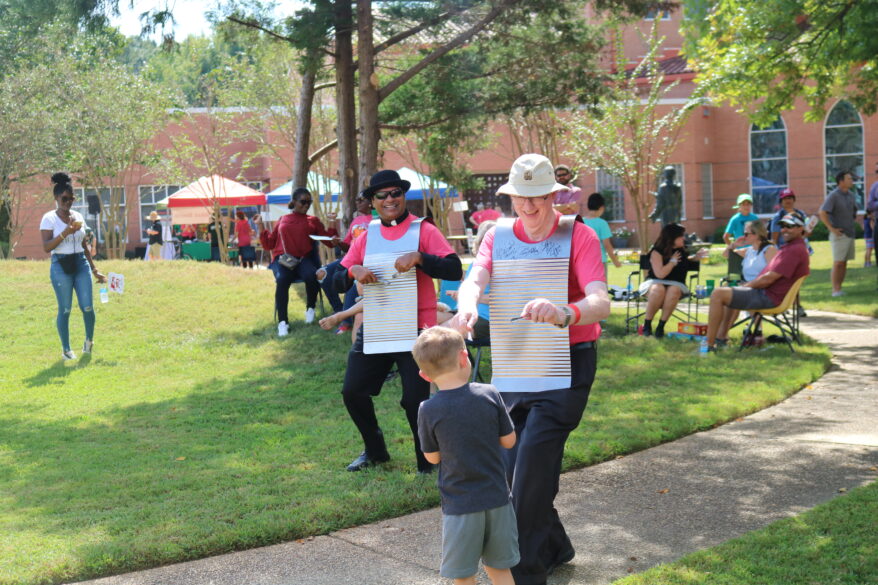
“A professor at seminary prepared us to face difficulty in the U.S. but said it wouldn’t be fair to tell us what to do. He said, ‘I’ve given you moral principles. You apply them to the situation you find yourself in.’ That made an impression on me.”
Assigned to Our Lady of Victories in Pascagoula in 1967, Flannery organized the first Catholic Youth Organization (CYO) group to deliver items to Saltillo, but the game-changer was the involvement of Father Patrick Quinn. Saltillo Mission, Flannery’s book about the long-running service project that sent more than 20,000 Mississippi youth to Mexico, was published in 2017.
“Father Quinn had a tremendous love for the poor,” Flannery said. “One year he was seriously injured in a car accident on a slick mountain road, and Bishop Brunini wanted his medical treatment done in Mississippi. Quinn initially refused, saying he would receive care unavailable to the poor. He eventually agreed to it, but only if he could return to Saltillo once healthy.”
Valerie Balser Winn, accompanied her CYO from St. Alphonsus in McComb to Saltillo in 1973.
“Father Flannery always seemed full of energy and laughter as he drove a crowded jeep among the prairie dogs and cacti for what seemed like hours,” Winn said. “He supervised the deliveries of medicine, dental care and balloons for the children.
“Not knowing Spanish myself and watching him tell those gathered for Mass in the tiny brick and mud huts about Father Quinn’s accident … I can still see the shock and sadness in their faces. Then I saw them comforted with Father Flannery’s message of hope.”
Flannery’s mastery of Spanish led to his assignment to Rosedale, one of several Delta towns where he worked primarily with migrants. While in Cleveland he was asked by Bishop Brunini to learn canon law. Finishing at St. Paul’s in Ottawa, Canada, in 1985, Flannery was brought into the tribunal after returning to Mississippi, serving as judicial vicar.
“I see the tribunal as a healing ministry,” he said. “Divorce is a very painful thing, as part of you dies in that process. My experiences in Saltillo, with a lot of people suffering there, got me interested in the tribunal.”
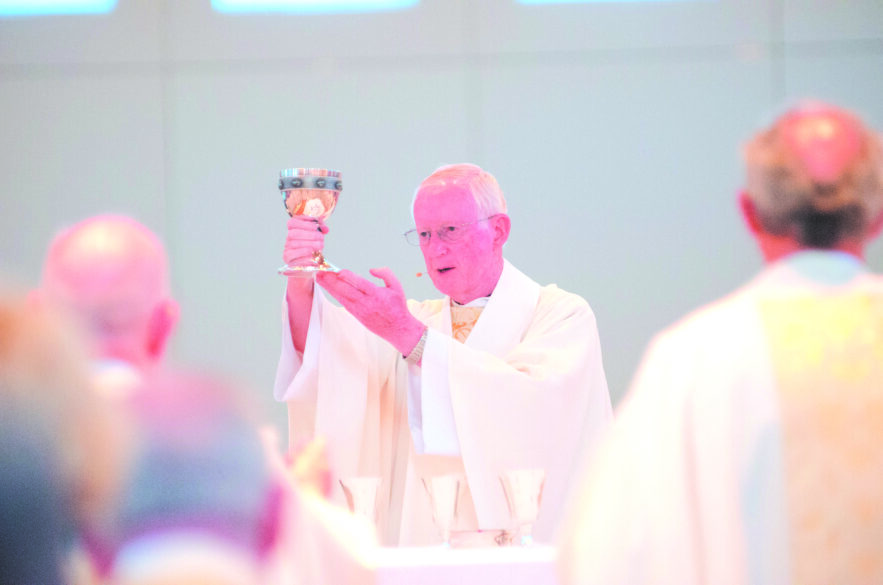
The vicar general at the time was Father Francis Cosgrove, a fellow Irishman and a good friend of Flannery’s. Cosgrove would be assigned to St. Francis of Assisi in Madison in 1994, and Flannery was named vicar general. When Cosgrove was sent to Meridian in 2005 to pastor at St. Patrick, Flannery was moved to St. Francis.
“Father Cosgrove built the church, which was dedicated in 2000,” Flannery said. “I was glad to get back to parish ministry, my first love. The initial plan was for St. Francis to have a church, a family life center and a school. The first two had been taken care of by the time I got there.”
When a diocesan survey showed great support for another Catholic school in the Jackson area, Flannery went right to work. St. Anthony opened in Madison in 2009, and enrollment has tripled in 15 years.
“Father Mike’s generosity to St. Anthony is a matter of record,” said St. Francis parishioner Ed Marsalis. “I love him dearly. He is a best friend, a true theologian. He continues the mission he was given that graduation day in Ireland and performs weekly masses in our parish and throughout the diocese.”
Msgr. Elvin Sunds compares his friend of half a century to the Good Shepherd in giving his all for his sheep. Father Albeen Vatti, St. Francis pastor since 2015, delights parishioners by routinely bantering with Flannery but has a deep respect for him.
“He’s always willing to help and lives a very simple lifestyle,” Vatti said. “Following him was challenging because of his years of experience, but he has been a great blessing to me.”
Now in his early eighties, Flannery shows no signs of slowing down. He visits St. Anthony often during the school year to entertain young Eagles, and he’ll fill in at parishes all over central Mississippi during the scalding summer months. He wouldn’t be anywhere else.
“I’ve been happy as a priest,” he said. “It has been a good life, a joyful life, and I would do it again.”
Bishop Gerow’s journal describes JFK’s assassination
From the Archives
By Mary Woodward
JACKSON – In working on a history project that explores some pivotal moments in our nation’s history, I came across some poignant reflections in Bishop Gerow’s diary. The passages are from November 1963. This of course was the moment when President John Kennedy was assassinated in Dallas, Texas. Many of us have seen the grainy video coverage of that violent act and the ensuing days of mourning, rituals and interment. It was a shocking moment in the country, which seemed to be brimming with optimism and opportunity. It marked an initial loss of innocence in a decade of change.
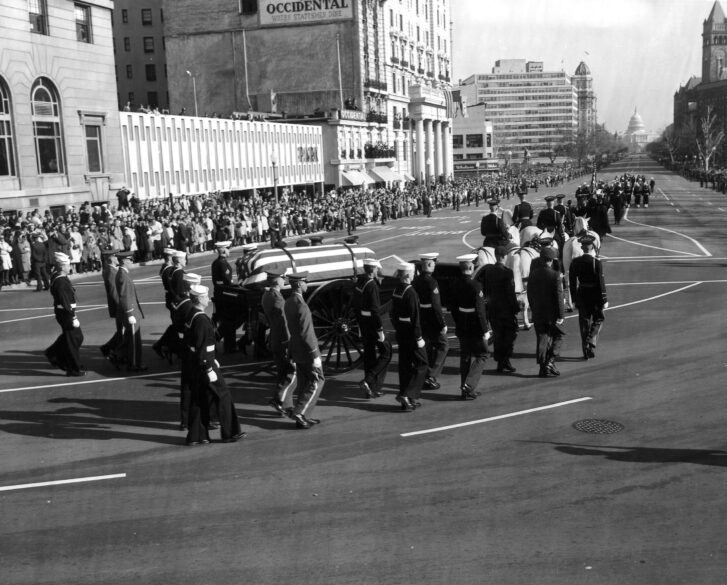
I now share the following entries from the diary to chronicle how our local church experienced those momentous days. The language used was the language of the day, so I have left it unchanged.
November 22 (Friday):
Today about 12:30 President Kennedy was shot and killed. He was on a visit to Dallas, Texas. When the news came over the radio, I am told that in our Catholic schools here in Jackson – or at least in many of them – the children dropped to their knees in prayer and many of them wept. Television station WJTV here in Jackson asked me to come out to the station and make a statement which I did in which I praised Mr. Kennedy for his high principles and spoke of the hatred that caused his assassination and asked the public for prayers for the country and for the deceased.
November 23 (Saturday)
Today in my private chapel I offered Mass for President Kennedy. Later, the television station WLBT asked me to come out to the station and speak which I did. In substance I said it is time to reflect and pray – to reflect on the love of our neighbor that our Divine Lord taught and to reflect upon the hatred that burns in the breast of some. These must share with the assassin the blame for this crime, asked prayers for our country, for the new President, and for Mr. Kennedy, etc. I announced on this station as well as yesterday that on Monday at noon I would celebrate a Pontifical Requiem Mass to which the public is invited.
November 25 (Monday)
At noon in St. Peter’s Co-Cathedral I sang a Solemn Mass of Requiem for the President.
The procession to the church started in the school yard. In the procession were the Fourth Degree Knights of Columbus in full regalia. Clergymen from many of the non-Catholic churches in the city, most of them in their church robes, preceded our diocesan clergy. Amongst them were Rt. Rev. John M. Allin, Coadjutor Bishop of the Episcopal Diocese of Mississippi and a good group of Episcopal clergymen, Rabbi Perry Nussbaum of the local Synagogue, Dr. Seth Granberry of the Capitol Street Methodist Church (who by the way replaces Dr. Clark who was forced by his congregation to resign because of his views of justice to the Negro), Dr. Jeff Cunningham of the Galloway Methodist Church (who replaced Dr. Selah, who like Dr. Clark had to resign because of his views), Rev. Wade Koons of the Trinity Lutheran Church (who had had much opposition from his congregation because of his Christian views on race). Rev. Fred Tarpley of Ridgecrest Baptist Church. These ministers were given seats in the church in the front pews – our own clergy, who were not on ceremonies, were in the choir loft.
Among the civic public figures in the church were former Governor Hugh White, former Governor J. P. Coleman, Mayor Allen Thompson, Attorney General Joe Patterson, Secretary of State Heber Ladner, State Superintendent of Education J. M. Tubb, and State Tax Collector William Winter.
The church was filled with people, seated in all the pews and standing in close formation in all available standing room. One of the policemen outside told one of our priests that at least a thousand people were turned away because there was no room in the church.
At the Gospel time I spoke. My theme was God’s love of us his children and our duty to love Him and His other children. At the Communion time it was a pleasure not only to see the large number who received Communion, but also to note that amongst those who received were a generous sprinkling of Negroes. It was good for the state and city officials to see these Negroes coming to the Altar rail and kneeling beside the whites and doing this without any sign of race discrimination.
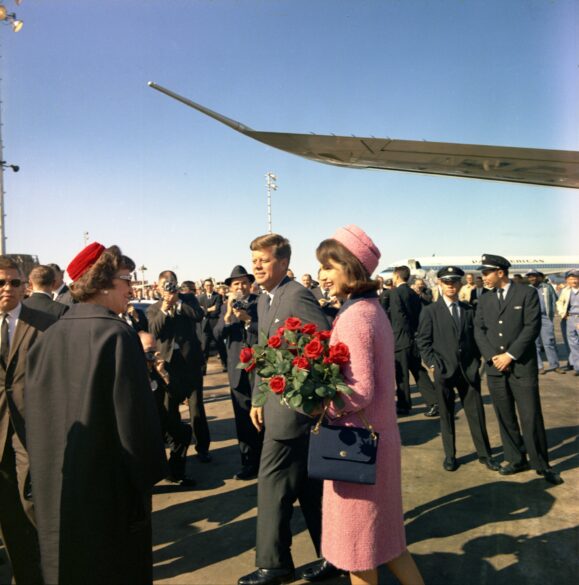
After the Mass, the clergy, our own and the non-Catholics, gathered in the Chancery Office and witnessed on television the funeral of President Kennedy in Washington. This being over about 2:30 we all gathered in the general dining room of the Sun-n-Sand Motel for lunch. It is interesting to note that Father Bourges, S.V.D., Pastor of Holy Ghost Church, who is a Negro went into the dining room with the rest of us and was served without comment.
I felt much gratified at the fine ecumenical spirit of friendliness exhibited in our relationship with our non-Catholic ministers. In my own mind these ministers who gathered with us are good, earnest, sincere men who wish to honor and serve God and they do so in the way that they understand to be the way that God wishes.
(Mary Woodward is Chancellor and Archivist for the Diocese of Jackson.)
Youth
Around the schools and diocese
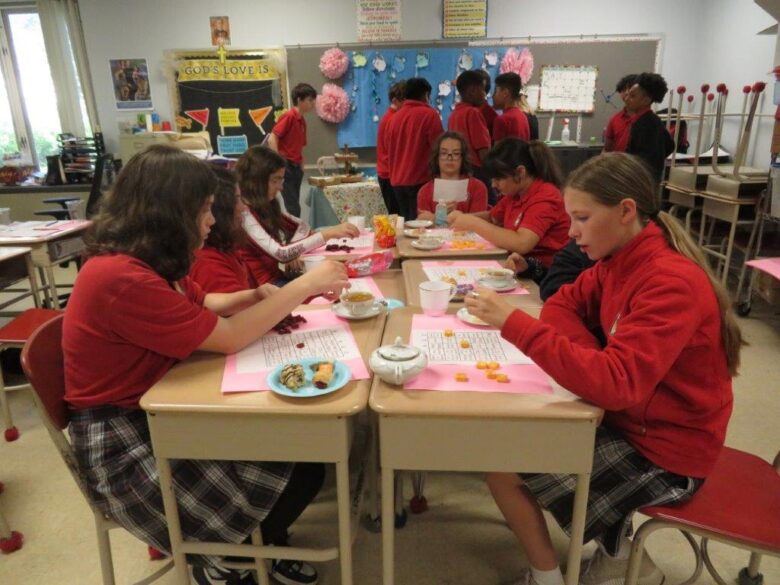
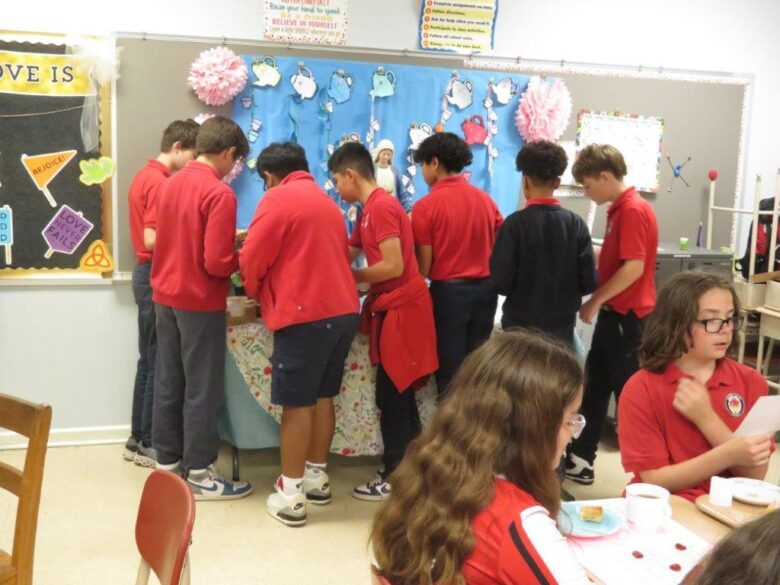
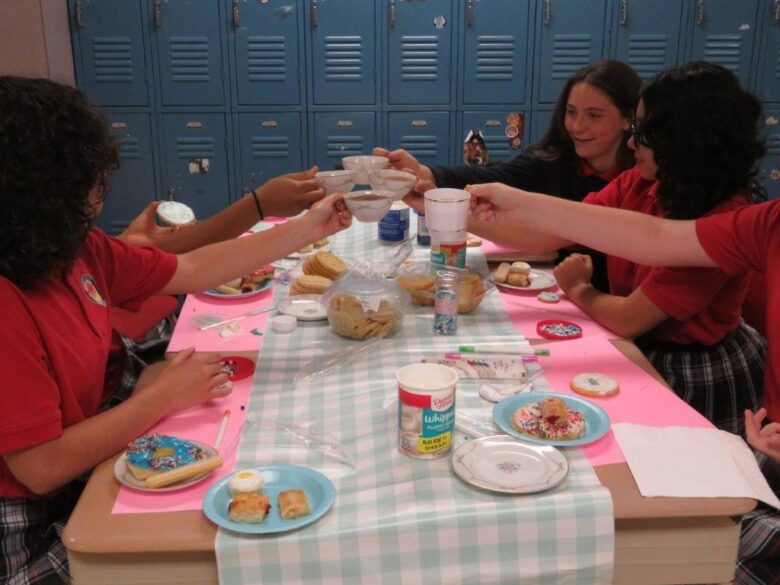
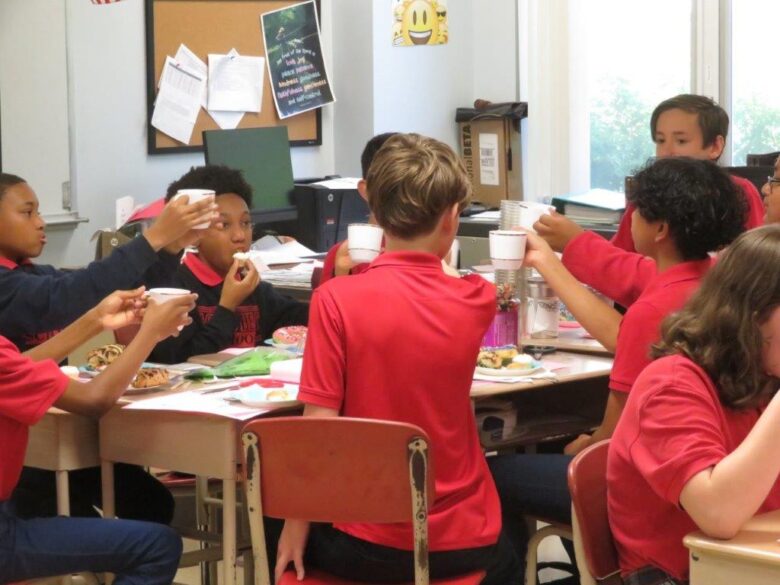
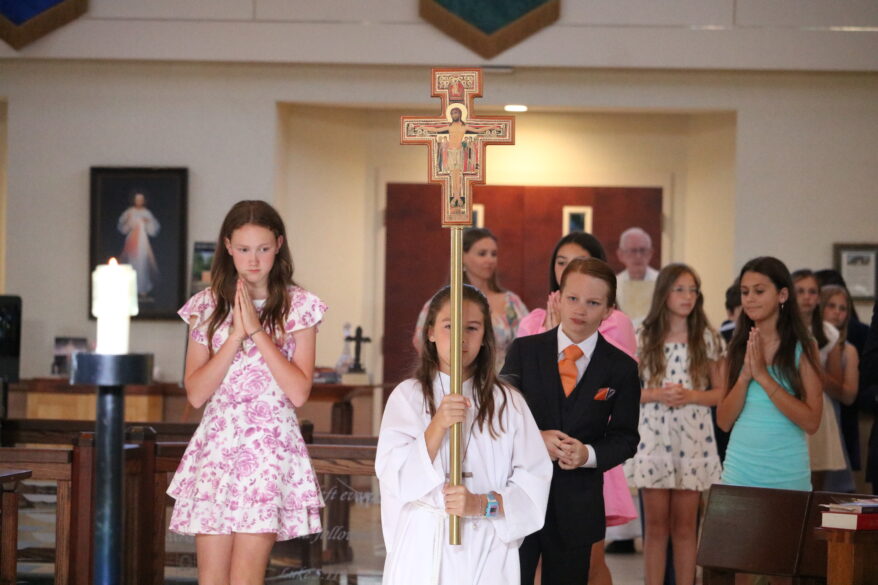
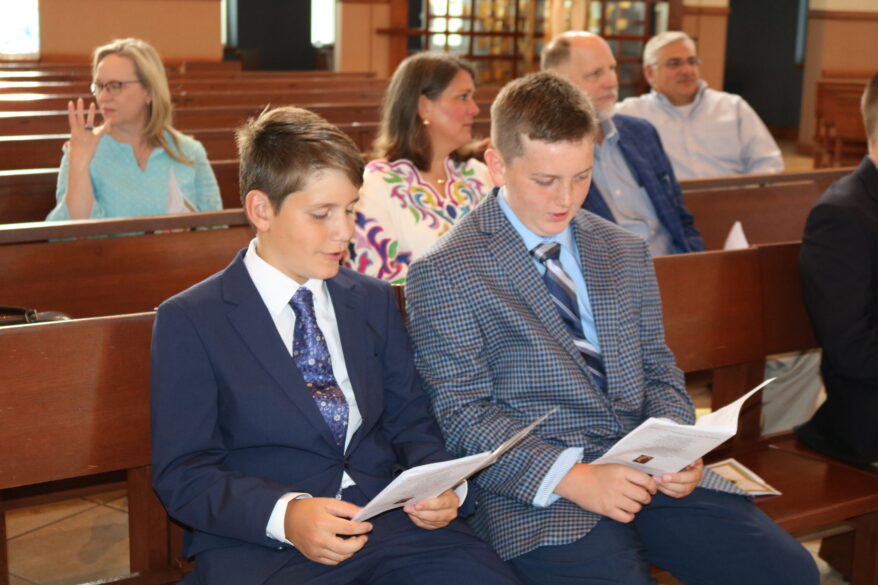
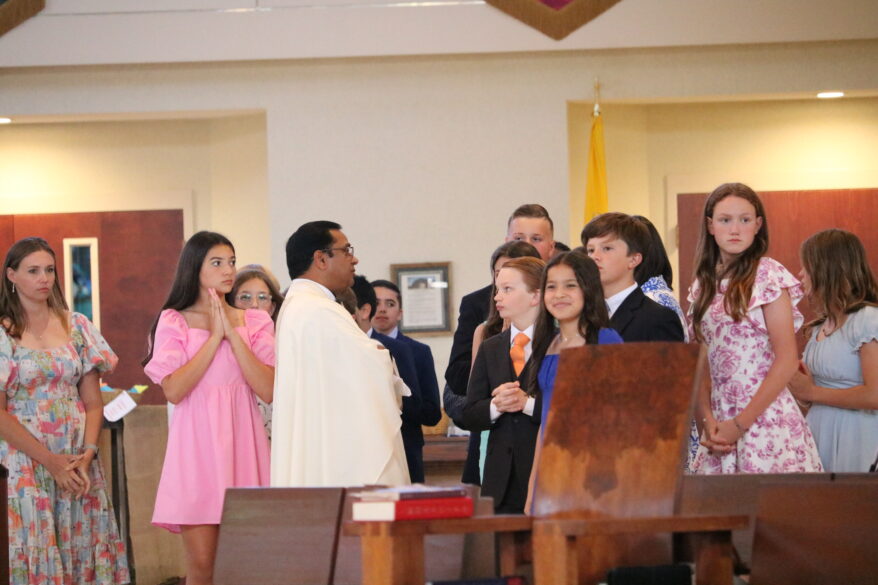
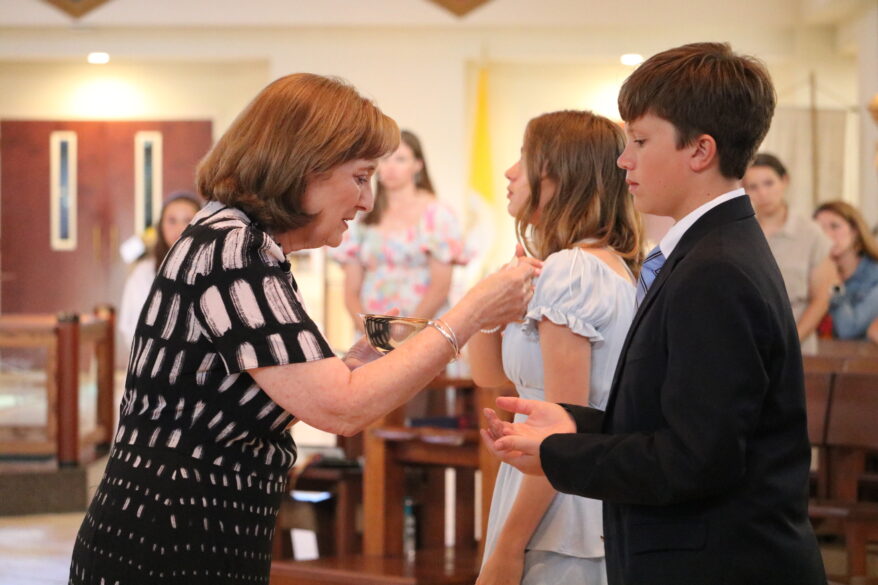
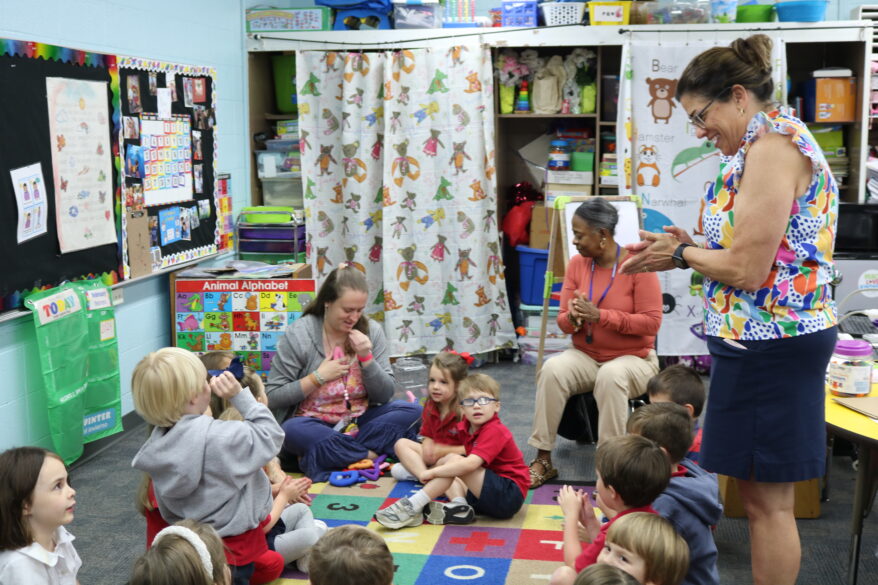

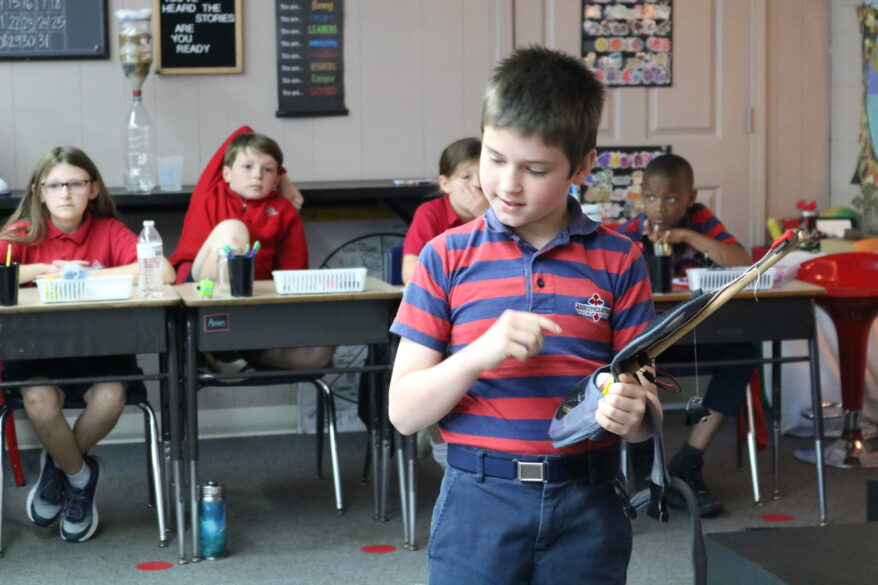
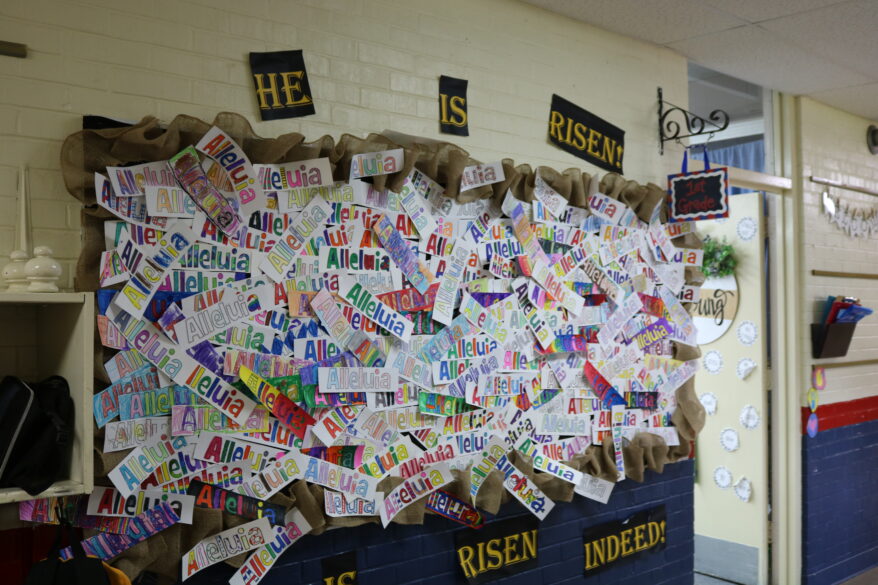
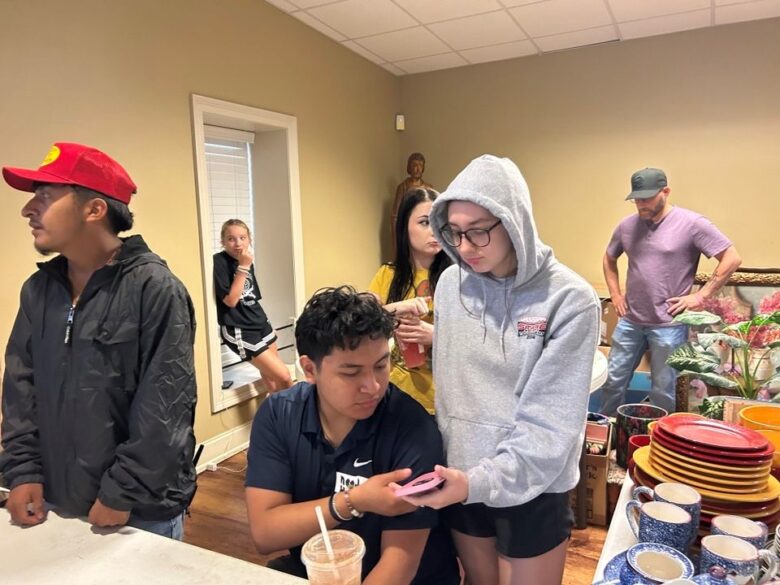



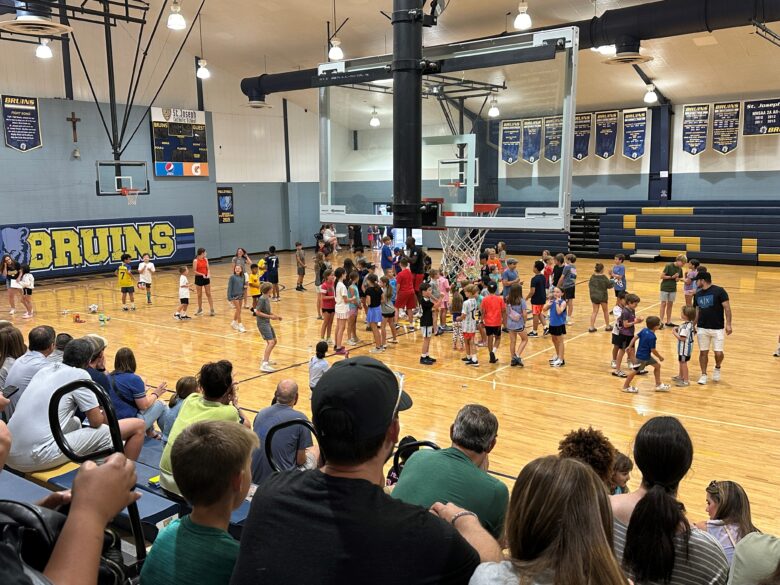
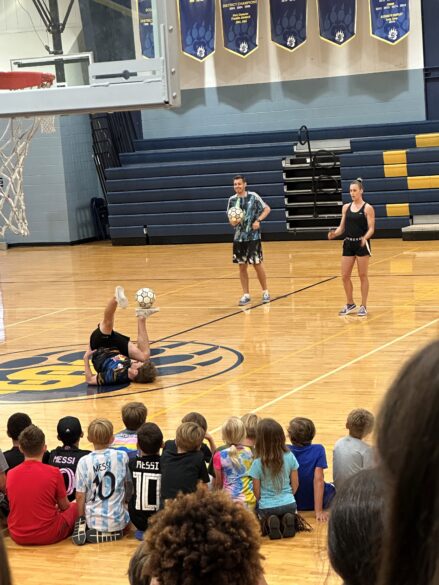


Holy Spirit inspires believers to embrace Sacred Heart of Jesus
By Bishop Joseph R. Kopacz, D.D.
It was 125 years ago that Pope Leo XIII consecrated the world to the Sacred Heart of Jesus at the dawn of the 20th century. Twenty-five years ago, at the dawn of the new millennium Pope John Paul II reconsecrated the world to the Sacred Heart imploring the church especially, but all people of faith and good will to see in the Sacred Heart of Jesus the essence of God who is love. Each year in our liturgical calendar the feast of the Sacred Heart is commemorated on the Friday after Corpus Christi, the Solemnity of the Body and Blood of the Lord. How fitting is this sacred combination. From the pierced side (heart) of the crucified Savior flowed blood and water, the gift of eternal love and the wellspring of the sacramental life of the church, baptism and the Eucharist.

The spirituality of the Sacred Heart steadily took root and flowered from the time of the visions of St. Margaret Mary Alacoque, VHM in the 1670s to the major movements of the 19th century. St. Cardinal John Henry Newman, a phenomenal theologian and apologist who embraced the Catholic faith at mid-life chose for his episcopal motto in 1879 “Cor ad Cor loquitur” heart speaks unto heart. At the center of his intellectual prowess and pastoral dedication was the beating Sacred Heart of the Lord solidly anchored in the scriptures. “I ask that the eyes of your heart may be enlightened so that you may know what the hope is of the glory of his inheritance in the saints.” (Ephesians 1:18)
A year earlier across the channel in France in 1878 Father Leo John Dehon received permission from the Vatican to establish the religious community of the Priests of the Sacred Heart in the same year on Feb. 20 that Pope Leo XIII began his long tenure that would last until 1903.
Do we see a pattern here? The Holy Spirit was hard at work to inspire believers from the center of the church to all points on the compass to embrace the Sacred Heart of Jesus.
Love for Jesus Christ in his Sacred Heart is Eucharistic through and through as we hear the words of the Lord echoing through time at every Mass: “this is my body, this is my blood poured out.” (Mark 14: 22-24)
To be washed clean in the Blood of the Lamb (Revelations 7:14) is the fountain of Eucharistic Revival. Yet, love for the Sacred Heart and the Lord’s sacrifice cannot be contained within our churches, as sacred as they are. The charism of the Priests of the Sacred Heart is to transform the world we live in through acts of compassion, justice and mercy. This labor of love on behalf of God’s Kingdom has been alive and well in the north of our diocese for over 80 years through the dedication of the Sacred Heart Fathers (SCJs).
Likewise, Pope Leo XIII in his love for the Sacred Heart of Jesus yearned for greater justice for all workers during the Industrial Revolution when so many, including children, were being crushed beneath the wheel of industry. His landmark encyclical Rerum Novarum or “The Rights and Duties of Capital and Labor” is valued as the foundational document for the Social Teachings of the church in every generation since.
The Sacred Heart of Jesus is well integrated into the liturgical and personal prayer of the church. We celebrate and cherish this symbol of God’s eternal love every First Friday of the month knowing that it is a love poured out every day of the year to enflame our worship and to inspire our actions on behalf of greater justice and peace in our world.
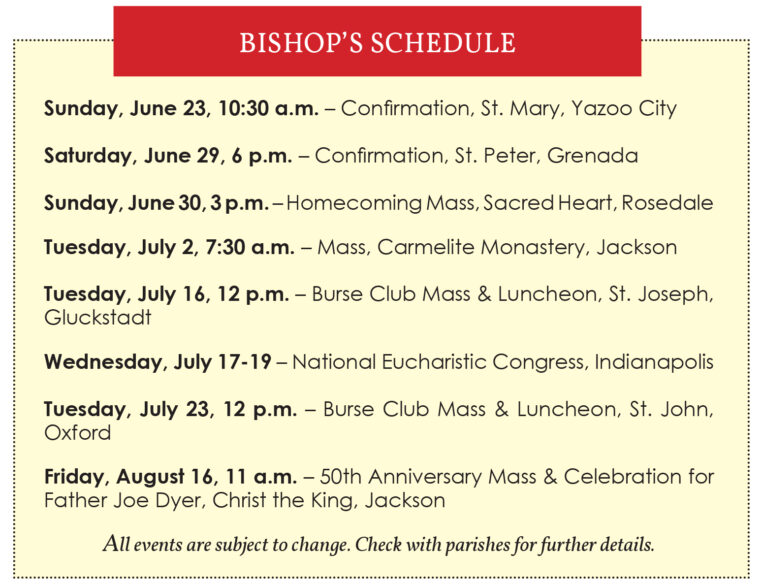
Jubilee Prayer: “I now consecrate my heart to your Sacred Heart, Jesus. You are the Son of God whom I love with all my heart. I offer you my body, soul, my mind, and my heart. Receive me, make me holy, make my heart like your heart, and guide me in the way of perfect love today and every day of my life. Amen.”
Pope says synodality should be ‘permanent way of acting in the church’
By Justin McLellan
VATICAN CITY (CNS) — Pope Francis said he hopes the spirit of openness and dialogue embodied in synodality remain the norm for the Catholic Church after the current Synod of Bishops comes to a close.
The pope told the moderators of church movements June 13 that his hope is that “synodality remain as the permanent way of acting in the church at all levels, entering in the hearts of all pastors and faithful until it becomes a shared ecclesial style.”
The “most important thing from this synod on synodality is not so much dealing with this or that issue,” the pope said. “The most important thing is the parish, diocesan and universal journey in synodality.”
In March, Pope Francis decided that the most controversial issues raised at the first assembly of the Synod of Bishops, including the role of women in the church and guidelines for training priests, will be examined by 10 study groups and sidelined from main conversations at the next synod assembly. The groups are scheduled to present a preliminary report to the synod’s second assembly in October and to give the pope a final report on their work by June 2025.
Some 200 participants in a conference of moderators of associations of the faithful, ecclesial movements and new movements met with Pope Francis as part of a yearly meeting at the Vatican organized by the Dicsatery for Laity, the Family and Life; the theme this year was “The Challenge of Synodality for Mission.”
The meeting “aims to highlight some examples of synodal structures and practices already implemented in associations and movements that can be an example and stimulus for the whole Church,” a statement by the dicastery said, such as ” sharing experiences of faith within small groups or small communities, community discernment, co-responsibility of lay and ordained ministers in assuming roles of governance, involvement of married couples and young people in evangelization (and) charitable and social action.”
Pope Francis said that humility and an openness to other people and ideas are “synodal virtues,” and he told participants that ecclesial movements are meant to be at the service of the church and not seen as “a superior thing” within the church.
“Closed movements should be canceled,” he said; “they are not ecclesial.”
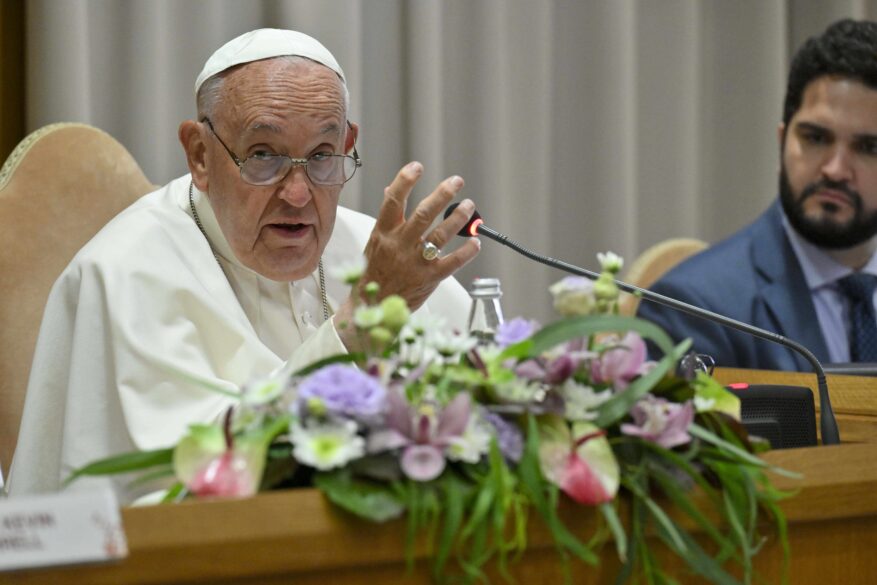
The pope said it is a temptation for members of the church to remain in a “closed circle,” to be “convinced that what we do is good for everyone, to defend, perhaps without realizing it, ‘group’ positions, prerogatives or prestige.”
Yet synodality asks Christians to see God’s presence at work “even in people we do not know, in new pastoral ways,” he said, as well as to “let ourselves be struck, even wounded, by the voice, experience and suffering of others: of brothers and sisters in the faith and of all the people close to us.”
Pope Francis asked the leaders of movements to remember that synodality involves thinking about what God wants from individuals and the church, so an absolute requirement is to not “take for granted that we are attuned to God” but rather “convert ourselves to think according to God and not according to men.”
“Let us remember that the protagonist of the synodal journey is the Holy Spirit, not us,” the pope said. “He alone teaches us to listen to God’s voice, individually and as the church.”
Happy Ordination Anniversary
June 1
Father Anthony Okwum, SSJ
Holy Family, Natchez & St. Anne, Fayette
June 2
Father Guy Wilson, ST
Holy Child Jesus, Canton & Sacred Heart, Camden
June 4
Father Joe Tonos
St. Richard, Jackson
Deacon Jeff Artigues
Deacon John McGinley
St. Joseph, Starkville
Deacon Denzil Lobo
Christ the King, Jackson
Deacon John McGregor
St. Jude, Pearl
Deacon Ted Schreck
Catholic Parishes of Northwest MS
June 6
Father PJ Curley
Retired
Father Daniel Gallagher
Retired
June 7
Father Kevin Slattery
St. Therese, Jackson
June 8
Father Thomas Delaney
Retired
June 9
Father Juan Chavajay
Sacred Heart, Canton
June 10
Father Robert Dore
St. Michael, Vicksburg
June 11
Msgr. Patrick Farrell
Retired
Father Thomas Lalor
Retired
Father Clifford Hennings, OFM
St. Francis, Greenwood
June 12
Father Kent Bowlds
Our Lady of Victories, Cleveland
Father Frank Cosgrove
Retired
Father Gerry Hurley
St. Paul, Flowood
June 13
Father Mike O’Brien
Retired
Father Mario Solorzano
St. James the Less, Corinth
June 14
Msgr. Mike Flannery
Retired
Father Tom McGing
Retired
Father David O’Connor
Retired
June 15
Father David Szatkowski, SCJ
Catholic Parishes of Northwest MS
June 16
Father Jeffrey Waldrep
Annunciation, Columbus
June 18
Father Anthony Quyet
Retired
June 26
Deacon David Gruseck
Annunciation, Columbus
June 27
Father Andrew Nguyen
Immaculate Heart of Mary, Greenwood
Father Cesar Sanchez
St. Jude, Pearl
Father Marco Sanchez, ST
St. Anne, Carthage & St. Therese, Kosciusko
Thank you for answering the call!
Celebrating Catechists!
KNEADING FAITH
By Fran Lavelle
I have spent the past year working closely with the Pastoral Reimagining Process for the diocese. Each phase of the process opened up opportunities for lay leaders to contribute to the conversation including their own wisdom and best practices as well as personal struggles.
One common comment that was shared was the difficulty in getting people to volunteer for ministry opportunities at the parishes. Perhaps it is part of the rebuilding after the pandemic or something more systemic, but many leaders noted that they are struggling to maintain a volunteer pool for catechesis as well as other ministries.
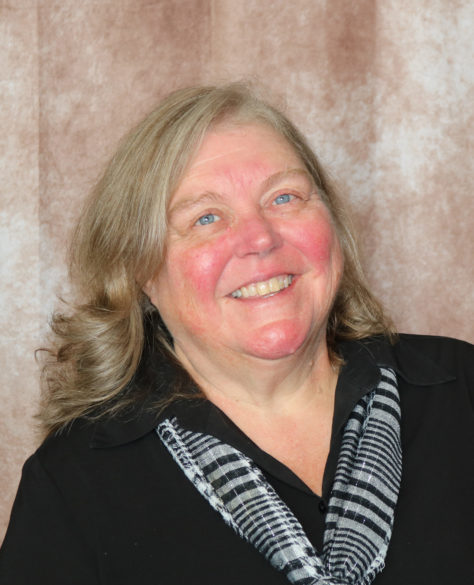
Volunteerism across the board is in decline in other denominations as well as civic and service organizations. The percentage of the U.S. population that volunteers on an average day has declined by 28% in the past decade, according to data from the Bureau of Labor Statistics. Studies suggest many attributing factors such as aging workers working past traditional retirement age. Whatever the cause, the effect is hurting the church’s ability to fulfill Catechetical and formation, as well as other volunteer opportunities at the local level.
We are charged with reimagining how to engage the people in the pews to want to give of their time and talent to our faith communities. One of the best ways to increase interest in giving back to the parish or community is to celebrate the people who are serving in voluntary ministry positions. It might sound silly or perhaps even a bit contrived, but we need to carve out times within the year to highlight the efforts of the lay people who are serving in ministry. And we need to celebrate everyone!
Celebrating everyone can be as simple as having a donut reception after Mass to recognize lay leaders and volunteers or creating a space in your bulletin to highlight the work of your parish’s volunteers. It is also helpful to share success with the community. A Flocknote or bulletin to everyone about the progress of a project or highlights of what the young people in religious education are doing creates opportunities for connection. Cross pollinate ministry opportunities like bringing different parish groups together for fun activities like doing a supply drive for the local animal shelter in conjunction with the feast day of St. Francis of Assisi and the blessing of the animals. People love to give, especially when they see the collective impact of the whole parish. Above all – make it fun! There is nothing worse than people coming to an event to volunteer and the day feels like drudgery. Faith and works can also include fun.
You may have been at a parish where one person or one group does everything. On its face it looks great. Things are being “taken care of.” But are they? One person or one group cannot do everything and if they do how well is it being done? When a parish does a time and talent survey but never calls the people who volunteered to help with specific ministries, we not only lose out on a volunteer, but we lose out on the gifts of those individuals could have shared with our parish family.
One simple idea to help your parish increase the pool of doers is to name a volunteer coordinator for the parish. They would work closely with the pastor, parish staff, ministry leaders to keep their finger on the pulse of what activities are happening at the parish. They would be able to recruit volunteers long in advance of the event. A Flocknote or bulletin announcement of upcoming events and an easy way for people to express interest would help streamline the process. At the end of the day it is about getting everyone involved with passing on the rich story of our faith. Many hands make light work.
Taking a note from my own advice, I want to thank all of the lay leaders, catechists and other volunteers that contributed to all of the formation ministries at our parishes this year. Keep your eye on the prize as you continue to animate the Good News. The fruits of your labor are evident in the young people we encounter at diocesan events and in everyday people we meet in our parishes. Keep doing your very best. We see you!
(Fran Lavelle is the Director of Faith Formation for the Diocese of Jackson.)
Companions for the journey through ordinary time
By Lucia A. Silecchia
“If you become a teacher, by your pupils you’ll be taught.” So goes a line from the prelude to “Getting to Know You,” one of the songs that punctuates the classic musical “The King and I.”
After many years as a teacher, I can vouch for the truth of this observation. I am particularly reminded of it during this time of year. Invariably, as I watch my students prepare for final examinations, they teach me much about how we should and could be companions to each other on our journeys through this life.
Anyone who has been to school will remember final exam season as a time in the semester that is fraught with work, worry and the desire to perform well on the examinations that will determine course grades. (Students may not realize that this season can also be one of equal stress for their teachers!)
Each semester, I am pleasantly surprised when I see my students navigating this season together. I see them working together in study groups, coming to my office hours with friends, and lingering after class to continue discussing the material we covered amongst themselves or with me. When I meet with them on Zoom, there are sometimes two, three or four on the screen, bringing to me their debates and their questions – or asking me to resolve a friendly dispute they have had about the correct resolution to a problem. I see them gathered around tables in our student lounge or our courtyard deep in discussion and notice that they share their notes with each other when one seems to grasp some of the material better than his or her peers.
In one sense, this is not what many would assume to be rational behavior. After all, there is a temptation to don blinders during the final weeks of the semester and focus solely on individual preparation for the exams that lie ahead. It can be tempting not to “waste” time helping others in the hope that all will cross the finish line together. To cynics, it might even seem counterintuitive to share wisdom or understanding with others out of fear that this will propel them to outperform the one who first shared that wisdom.
Yet, each semester I see my students traveling this final stretch of the semester together, and I am both proud of and grateful to them.
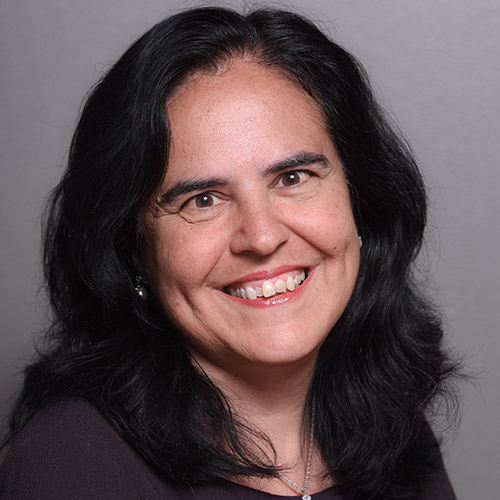
I am proud of them because they have not let the stress of exam season distract them from the opportunities they have to be of help to each other, to support each other, and to share the highs and lows of their common adventure.
I am also deeply grateful to them because the way they treat each other during exam season teaches me something about living the Christian life.
As human beings made in the image and likeness of God, we are made to live in community with each other and to share our lives with those entrusted to us and to whom we have been entrusted. We are not made to travel through this life to the next life alone. Rather, we are called to a faith that we do not keep to ourselves, but that we share freely with others.
We are called to help each other through the seasons of doubt and to rejoice with each other in the seasons of fulfilment. We are called to wrestle with the challenging questions of life together and help each other bear the burdens of difficult times. We are called to share freely “the reason for our hope” with those who ache to hear it. We are called to pray alone, but also to gather with our parish families, our friends and family, and even strangers to pray as a community.
My students show me this. In the mundane ways they walk together through exam season, they show me a glimpse of the more glorious way we are to walk together through this life and enter the next one in the company of each other. They show me what it means to be companions for the journey through ordinary time.
(Lucia A. Silecchia is Professor of Law and Associate Dean for Faculty Research at the Catholic University of America’s Columbus School of Law. “On Ordinary Times” is a biweekly column reflecting on the ways to find the sacred in the simple. Email her at silecchia@cua.edu.)
“Put his head on my knees”
FROM THE HERMITAGE
By sister alies therese
You might remember that I am fond of desert monastics for both inspiration and correction. Having recently left the hospital and rehab after five long months, I’m back home hoping to share with you a little nourishment.
There are all sorts of deserts that these stories might be applied to and hospitals, nursing homes, rehab, jails are among a few. Don’t forget the homebound.
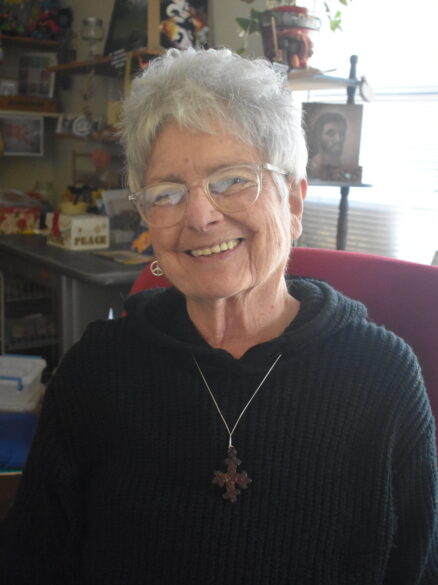
Desert monastic stories might be ‘true’ or not … in any case, the messages they bring are well worth at least devotional reading. Let’s consider two for ‘correction’ and one for inspiration.
“Abba Zosimas used to say: Take away the thoughts and no one can become holy. One who avoids the beneficial temptations is avoiding eternal life. It is like I always say: inasmuch as God is good, God has given us to profit from everything. However, we become attached and misuse God’s gifts, and so we turn these very same good gifts to destruction through our evil choice and are therefore harmed.”
I learned a lot from being so sick and I offer this reflection for those of our readers who are. Even when you are sick you can profit. Even when you have lost a good deal of control over your life, you can still profit. Bitter or better? You still choose. So, when opportunities come our way to be strengthened by adversity … let’s choose God for profit. This is often worked out by how one interacts with nurses, doctors and staff. Learning to listen beyond what we think is a real challenge. Learning to give up, give in and trust strengthens our resolve to love God alone.
What we value is often brought out when we are ill or restrained. I thought many times about how fortunate I was to be where I was (five hospitals and rehab). Would I die? Would I live? Who knew? Many medics were sure of the former (a scary time), but I kept trying to choose the latter.
Mentally I was stretched so my values got mixed up. Maybe I lost my temper, got angry? Or maybe I didn’t eat or I ate everything I could find? Our values come into bright relief when we are not in charge. Would seem that the things we have identify those values … but really it is who we are (in Jesus) that says a whole lot more.
“An old man said: If you have lost gold or silver, you can find something in place of what you lost. However, if you lose time you cannot replace what you lost.” Can we profit then from everything God sends … even those things we are sure are so important? What do we value? What do we share? What do we learn from difficulties?
Finally, I love a story about judgment and how we treat each other. I saw more than I would have liked of people left behind, uncaring professionals, and wrestling with my foibles. Judging others or ourselves is a slippery slope and one who has come to love God has learned this truth.
“Some old men came to Abba Poemen and said: Tell us, when we see brothers/sisters dozing during the sacred office, should we pinch them so they will stay awake? The old man said to them, ‘Actually if I saw a brother sleeping, I would put his head on my knees and let him rest.’”
I can be quick to judge what is right or wrong in any given situation and often I am completely off base. The tenderness of this story reminds me that we are flesh, and we are bound to fail, be weak and give in to ourselves. But here is a brother who understands this well and holds in his hands, as God does with us, the very flesh that this youngest or elder seems to be withholding. Oh no, God gives to His beloved in sleep the Psalmist reminds us and the beauty of this act reminds me to treat others and myself as God would have it. It is the heart of course that makes our awesome God smile and that is a treasure we can never lose and can always profit from. At the core of this heart, we develop that love that loved us first.
Maybe this anonymous little poem helps when we try to explain how great that love is. In A Nonny Mouse Writes Again we hear: “I know you little, I love you lots, my love for you would fill ten pots, fifteen buckets, sixteen cans, three teacups and four dishpans.”
What we learn to profit from will fill all that is around us and we become willing and able to put that love everywhere. So, when you encounter someone ill or left behind, offer them your hands and your knees, and let them rest. And when fear overcomes you, remember that love drives it out. The Russian author Ivan Turgenev in The Sparrow reminds us: “Love, I felt, more than ever, is stronger than death and the fear of death.” Rest, trusting that you are loved and cherished … and pass it on!
(Sister alies therese is a canonically vowed hermit with days formed around prayer and writing.)
